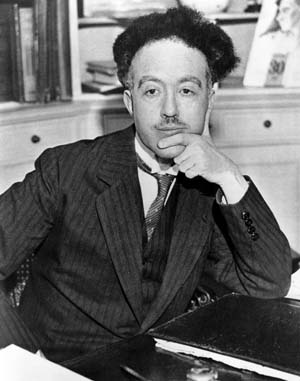
Louis Victor Pierre Raymond, 7th Duc de Broglie was a French aristocrat and physicist who made groundbreaking contributions to quantum theory. In his 1924 PhD thesis, he postulated the wave nature of electrons and suggested that all matter has wave properties. This concept is known as the de Broglie hypothesis, an example of wave–particle duality, and forms a central part of the theory of quantum mechanics.

Orléanist was a 19th-century French political label originally used by those who supported a constitutional monarchy expressed by the House of Orléans. Due to the radical political changes that occurred during that century in France, three different phases of Orléanism can be identified:

Antoine de Rivarol was a Royalist French writer and translator who lived during the Revolutionary era. He was briefly married to the translator Louisa Henrietta de Rivarol.

Caroline-Stéphanie-Félicité, Madame de Genlis was a French writer of the late 18th and early 19th century, known for her novels and theories of children's education. She is now best remembered for her journals and the historical perspective they provide on her life and times.
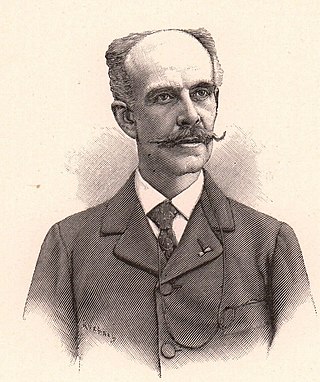
Gabriel Paul Othenin de Cléron, comte d'Haussonville was a French politician and author.

Albert de Broglie, 4th Duke of Broglie was a French monarchist politician, diplomat and writer.
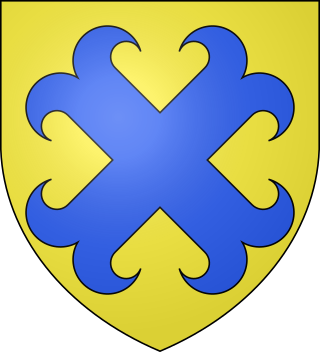
The House of Broglie is a French noble family, originally Piedmontese, who migrated to France in the year 1643.

The Revue des deux Mondes is a monthly French-language literary, cultural and current affairs magazine that has been published in Paris since 1829.

Alain Decaux was a French historian. He was elected to the Académie française on 15 February 1979.
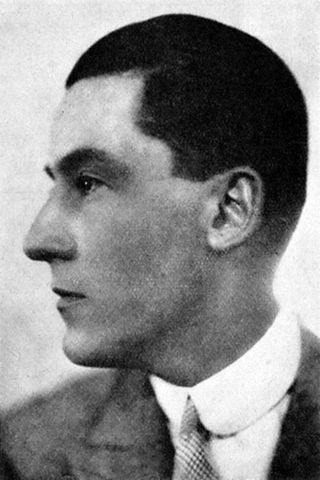
Jacques de Lacretelle was a French novelist. He was elected to the Académie Française on 12 November 1936.
Roger Duchêne was a French biographer specializing in the letters of Madame de Sévigné.
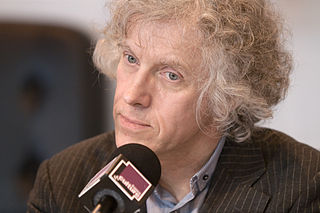
Pascal Ory is a French historian. A student of René Rémond, he specialises in cultural and political history and has written on Fascism ever since his master's dissertation on the Greenshirts of Henri Dorgères. In the 1970s, he contributed to a better definition of cultural history.

René de La Croix de Castries was a French historian and a member of the House of Castries. He was the sixteenth member elected to occupy seat 2 of the Académie française in 1972. He wrote under the pen name Duc de Castries, a courtesy title drawn from his family’s extinct dukedom.
The Prix Guizot is an annual prize of the Académie Française, which has been awarded in the field of history since 1994 by Fondations Guizot, Chodron de Courcel, Yvan Loiseau and Eugène Piccard.
The Prix Marcel Pollitzer, formally the Prix des écrivains combattants Fondation Marcel Pollitzer, is a French literary award created in 1953 by the Association des écrivains combattants. Named for writer Marcel Pollitzer, it is awarded every year to "a work of history and, preferably, to a biography".

Jean-Noël Pancrazi is a French author.
The prix Broquette-Gonin was a former prize awarded by the Académie française.

Ghislain de Diesbach de Belleroche was a French writer and biographer. He died on 14 December 2023, at the age of 92.

Jean d'Azémar de Fabrègues was a French Catholic intellectual and journalist. He was a "traditional" Catholic, rejecting the materialism of both liberal democracy and the totalitarian regimes of the right and the left.
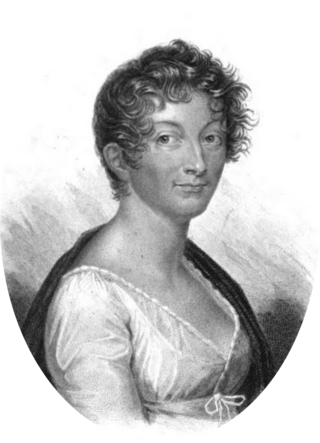
Pauline de Meulan was a French writer and journalist, known especially for her work on education and her liberal position in the aftermath of the French Revolution. French literary critic Sainte-Beuve described her as the best and most important moralist since Jean-Jacques Rousseau.
This page is based on this
Wikipedia article Text is available under the
CC BY-SA 4.0 license; additional terms may apply.
Images, videos and audio are available under their respective licenses.
















